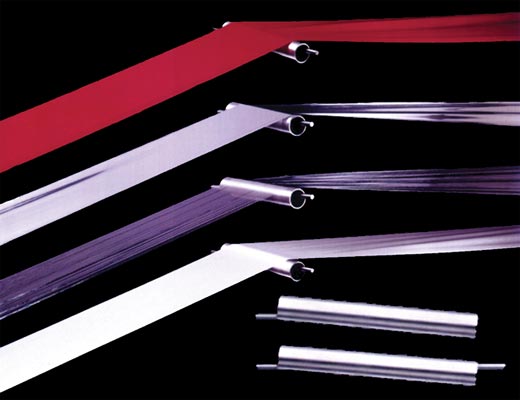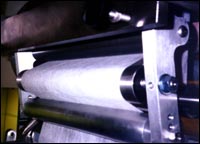You can download our product information in PDF under each product page.

If you do not have Adobe Acrobat Reader installed, please download it for free here. |
|
 |
 |
MODEL ETC-4,5
CROSS-MACHINE WEB TENSION CONTROL
Download product information in PDF here (  695 KB) 695 KB)

|
 |
|
 |
Improve Printability / Improve Quality / Help Hold Print Registration /
Improve Coating & Adhesive Application / Reduce Waste / Reduce Web Weave / Reduce Stretching / Reduce Web Breaks /
Reduce Wrinkles / Eliminate Web Fluttering
For more than a decade ERIDAN has been respected as
the leader in tension control across the web and around
the world. Performance, reliability, and controllability
are the hallmarks of our Model ETC systems.
The patented ERIDAN Model ETC-4,5 Web Tension Control
Systems automatically maintain uniform cross-machine tension
on running webs. ETC-4,5 systems are universal in application
and can be employed with a variety of webs such as paper,
film, foil, and textile. They are designed for the lighter
narrow webs below 100 lbs. (45.5 kg).
 Significant
benefits for all web substrates are realized through the
reduction, or complete elimination of web weave, stretching,
and web tearouts during machine speed changes. Printing,
coating, laminating, and adhesive applications are improved
because the web no longer has a loose side fluttering
through the process. Even heat application will provide
more equal shrinkage across the web and result in less
warp in finished products. Significant
benefits for all web substrates are realized through the
reduction, or complete elimination of web weave, stretching,
and web tearouts during machine speed changes. Printing,
coating, laminating, and adhesive applications are improved
because the web no longer has a loose side fluttering
through the process. Even heat application will provide
more equal shrinkage across the web and result in less
warp in finished products.
By automatically adjusting for any changes in tension across the web, the ETC’s
essentially equalize those tension imbalances and remove the stress lines in the web. This advantage provides a considerable improvement in overall quality and a dramatic reduction in waste. It also improves sensor scanning by presenting a flat web to the detector for a more accurate reading.
The ETC-4,5 Web Tension Control Systems act much like cantilevers. This
permits the web itself to control the positioning of the roll to achieve the
optimum tension equalization and to enhance response time to tension changes.
When the web pulls with more force against one end of the roll, that end will
move away while the opposite end moves into the loose side of the web to
equalize tension. Increasing the web angle and the web loading over the roll
both improve system sensitivity. The unique bearing design compensates for
many machine misalignments by reorienting the web path onto a perpendicular
plane with the next surface. |
|
|
|





